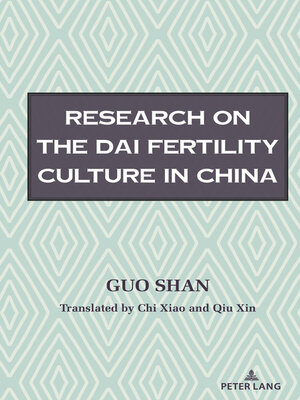
Sign up to save your library
With an OverDrive account, you can save your favorite libraries for at-a-glance information about availability. Find out more about OverDrive accounts.
Find this title in Libby, the library reading app by OverDrive.



Search for a digital library with this title
Title found at these libraries:
| Loading... |
During the 20th century, the Dai people lived a traditional agrarian life, with minimal modern industry and commerce. Yet unlike other rural societies and ethnic groups such as the Han, birthrate was moderate and there was no son preference. To understand this apparent anomaly, the book draws on a range of anthropological and psychological theories of human behavior by scholars such as Fei Xiaotong, Li Yinhe and Abraham Maslow, and shows the complexity of human fertility behavior, and the inadequacy of purely economic theories.
The prevalence of Theravada Buddhist, abundant natural resources and an inheritance system that is agnostic about the sex of the children are key factors in the persistent low fertility and belief in gender equality among the Dai people. The author argues that this understanding of how low fertility rate can take place without overt policy intervention has important implications for what China might do to prepare for its demographic future.






